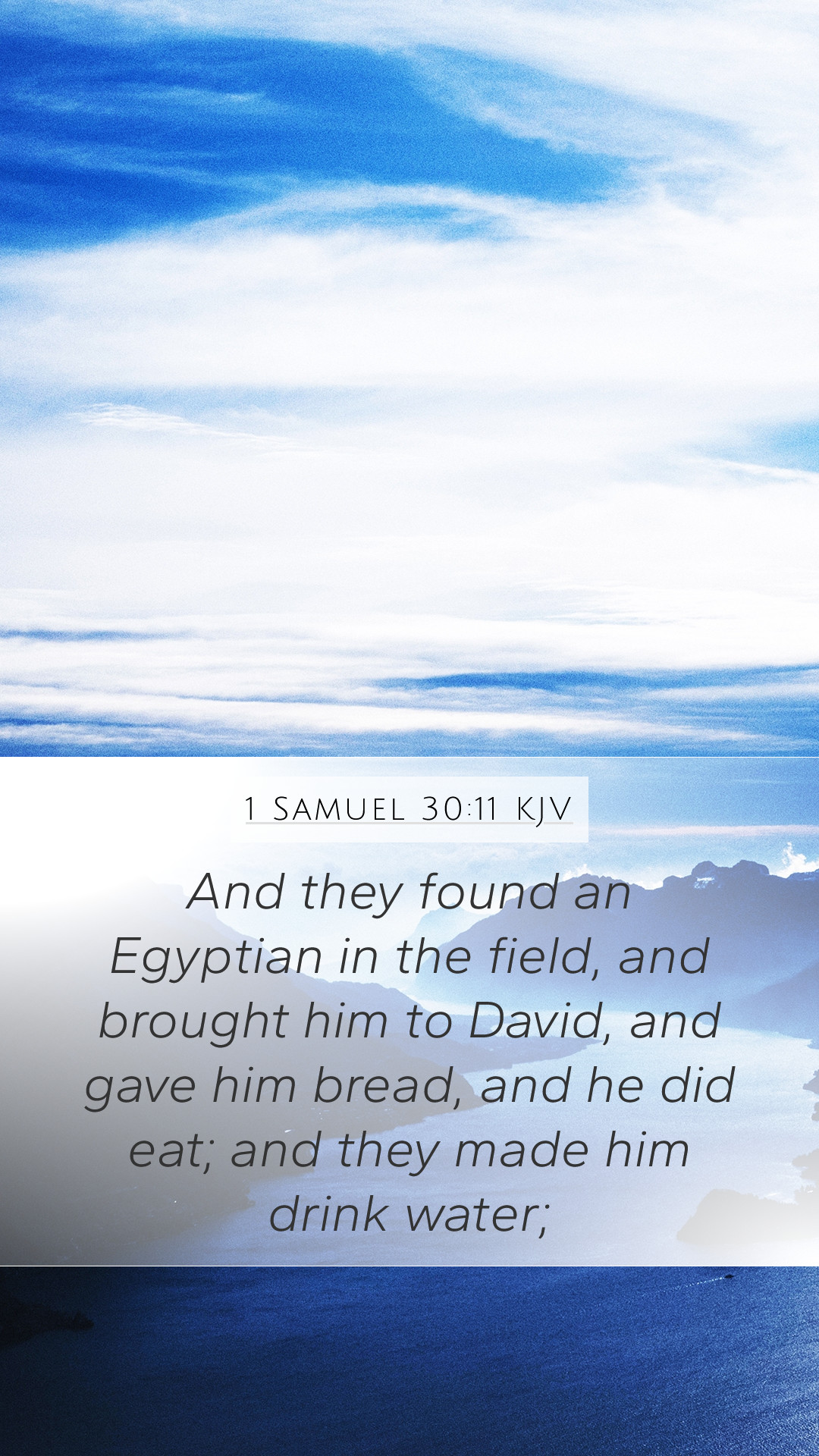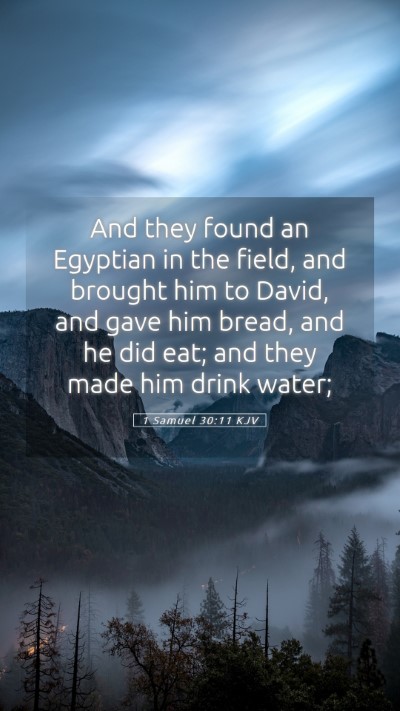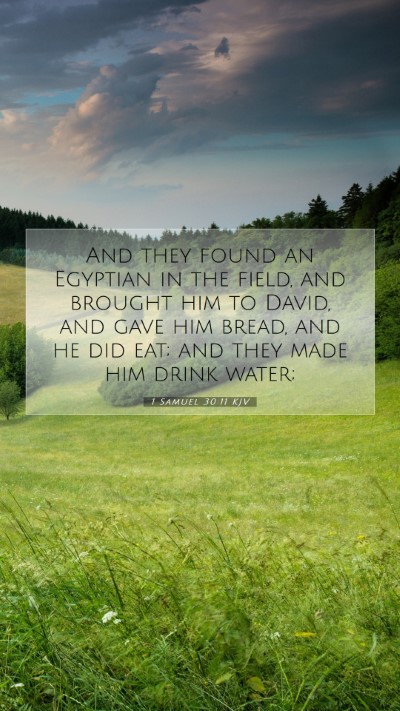1 Samuel 30:11 - Commentary and Explanation
The verse 1 Samuel 30:11 reads: "And they found an Egyptian in the field, and brought him to David, and gave him bread, and he did eat; and they made him drink water." This passage conveys an important narrative moment in David's life, providing not only historical context but also spiritual insight. Below, we explore the meanings and interpretations of this verse through a compiled analysis of insights from respected public domain commentaries.
Contextual Background
David and his men were in a dire situation after the Amalekites attacked their city, Ziklag. They returned home to find it burned and their families taken captive. This moment highlights themes of despair, struggle, and divine providence, illustrating the challenges David faced as he sought to reclaim what was lost.
Insights from Commentaries
-
Matthew Henry:
Henry emphasizes the providential nature of finding the Egyptian. He interprets this as God’s way of guiding David to the information needed to recover his loved ones. By aiding someone in need, David not only shows mercy but also acts in faith, trusting that this encounter could lead him to victory.
-
Albert Barnes:
Barnes notes the significance of the Egyptian in the narrative. He explains that this individual represents both vulnerability and the potential for redemption. David’s compassion towards the Egyptian showcases the characteristic of a true leader—one who recognizes that assistance to others can yield unexpected returns.
-
Adam Clarke:
Clarke delves into the social and cultural implications of this encounter. He points out that finding a foreign slave in such circumstances was unusual. The actions of David reflect the importance of kindness, even towards enemies or strangers, illustrating a broader biblical principle of showing love and compassion.
Thematic Elements
This verse can be understood through several key themes:
-
Divine Providence:
The unexpected meeting with the Egyptian underscores the belief that God orchestrates events in our lives to lead us toward fulfillment of His purposes.
-
Compassion and Mercy:
David’s actions demonstrate the call to be merciful, reinforcing the idea that our compassion can bring about healing and restoration not just to others but also to ourselves.
-
Leadership Qualities:
This encounter reveals David’s strength as a leader—his ability to recognize the importance of every individual, regardless of their status, in the larger narrative of recovery and redemption.
Application and Reflection
Understanding this passage challenges believers to consider how they interact with those in need. Like David, we are called to show kindness and compassion, which can lead to unexpected blessings and guidance in our lives.
Cross References
- 1 Samuel 30:15: David’s inquiry and resulting decisions based on information from the Egyptian.
- Proverbs 21:13: The importance of listening to and aiding those who cry out for help.
- Matthew 25:35-40: The connection between serving others and serving Christ.
Conclusion
1 Samuel 30:11 serves as a profound reminder of the mercy, leadership, and divine guidance evident in our everyday encounters. Through this biblical verse, we gain understanding not only of the narrative but also of the principled life that followers of God are called to lead.


